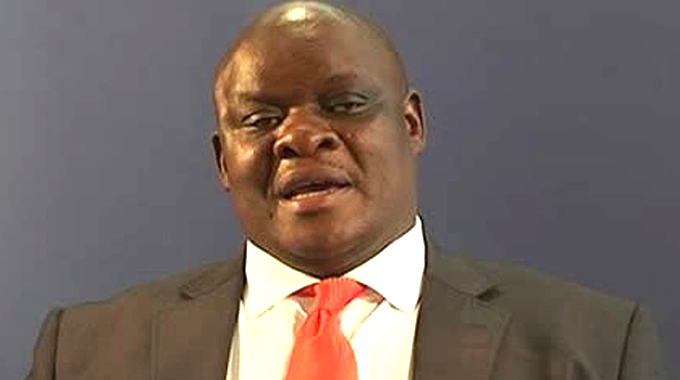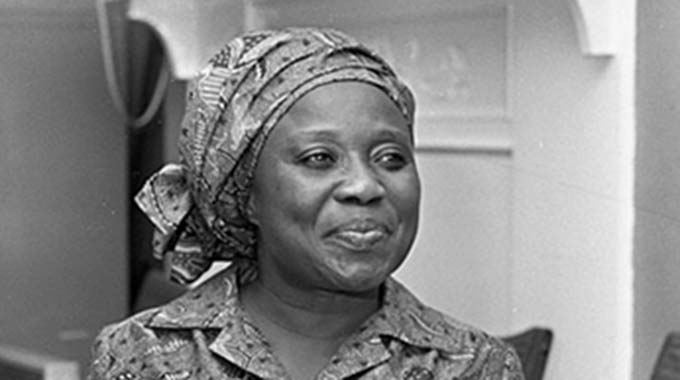Landmark ruling in chief justice’s estate wrangle

Fidelis Munyoro Chief Court Reporter
The three-year-old wrangle over the estate of former Chief Justice Godfrey Chidyausiku involving his two widows has been settled for now after the High Court last week ruled that they are both eligible to share the national hero’s pension.
Chidyausiku died three months after retirement in May 3, 2017.
He was the first judge to be interred at the National Heroes Acre.
At the time of his death, Chidyausiku was staying with Farai Kunaka, while he was legally married to Mary.
His death sparked a fierce wrangle between over his wealth.
This resulted in the fight spilling into the High Court with Kunaka suing the Judicial Service Commission, Pension Master, Paymaster, Minister of Justice, Legal and Parliamentary Affairs and Mary Chidyausiku.
She asked the court to compel the respondents to process the terminal benefits of the late Chief Justice in equal shares with Mary and paid into their separate nominated bank accounts.
The only dispute before the judge was whether or not Kunaka and Chidyausiku had an unregistered customary law union and if such union is recognised as a marriage for purposes of the widows’ pension benefits.
All the cited State institutions took a position that they would abide by the court’s decision, leaving the battle between the two widows.
Mary wedded Chief Justice Chidyausiku in February 1974 under the African Marriages Act, it being a potentially polygamous marriage.
The marriage existed at the time of Chief Justice Chidyausiku’s death.
The dispute arose when Mary filed a High Court application for widow and children’s pension in January 2018.
Kunaka followed suit and filed hers in May the same year, setting the stage for a tussle for Chief Justice Chidyausiku’s inheritance in motion.
Faced with two competing applications, the Pension Master held any disbursements in abeyance pending a decision of the court as to who is the surviving spouse.
It emerged during the hearing of the dispute that Kunaka changed her surname to Chidyausiku through a notarial deed of change of name in August 2012 at the behest of the late.
She was even issued with a diplomatic passport at the instance of the late Chief Justice, who wrote to the Secretary of Foreign Affairs in March 2014 requesting for the issuance of the document to her, as his wife.
Upon retirement, Chief Justice Chidyausiku completed a pension form in which he recorded his status as “married” and described his marriage as “unregistered customary” and on the column for name of spouse he stated, “Farai Chidyausiku nee Kunaka”.
It was on that basis, along with the law governing the pension of a male judge upon death that Justice Jacob Manzunzu declared Kunaka the second widow of the late.
“Applicant proved her case as fully supported by the conduct of the late,” he said. “I have no doubt that there was a customary law union between the applicant and the late Godfrey Guwa Chidyausiku. The applicant is the second wife of the late.
“The applicant is the second widow to the late . . . and is entitled to the widows’ pension in as much as the fifth respondent (Mary Chidyausiku) is entitled to the widows’ pension being the first widow of the late.”
Justice Manzunzu then ordered the JSC to sign all relevant papers and process the late Chief Justice’s terminal benefits and pension to be shared equally between the two widows.
The pensions master was ordered to do the same and make payouts to the widows.
In his judgment, Justice Manzunzu noted that the fact that the customary law union had not been registered in terms of the Customary Marriages Act, making it invalid, but is recognised for certain limited purposes.
He said pension does not form part of the deceased estate, thus the Administration of Estate Act will not assist to validate the marriage of Kunaka and the late Chief Justice, for purposes of entitlement to pension neither are the provisions of the Customary Marriages Act of any assistance to Kunaka.
But the Judges Salaries, Allowances and Pension Act recognises payment of pension to the widows of a judge, particularly Section 24 which makes it clear that Pension Regulations “shall apply mutatis mutandis, where a male judge or pensioner dies and leaves more than one widow.”
Mr Blessing Mutiro of Rubaya and Chatambudza law firm acted for Kunaka, while Mellisa Chinyangarara-Kaseke of Honey and Blankenberg, represented Mary Chidyausiku.









Comments